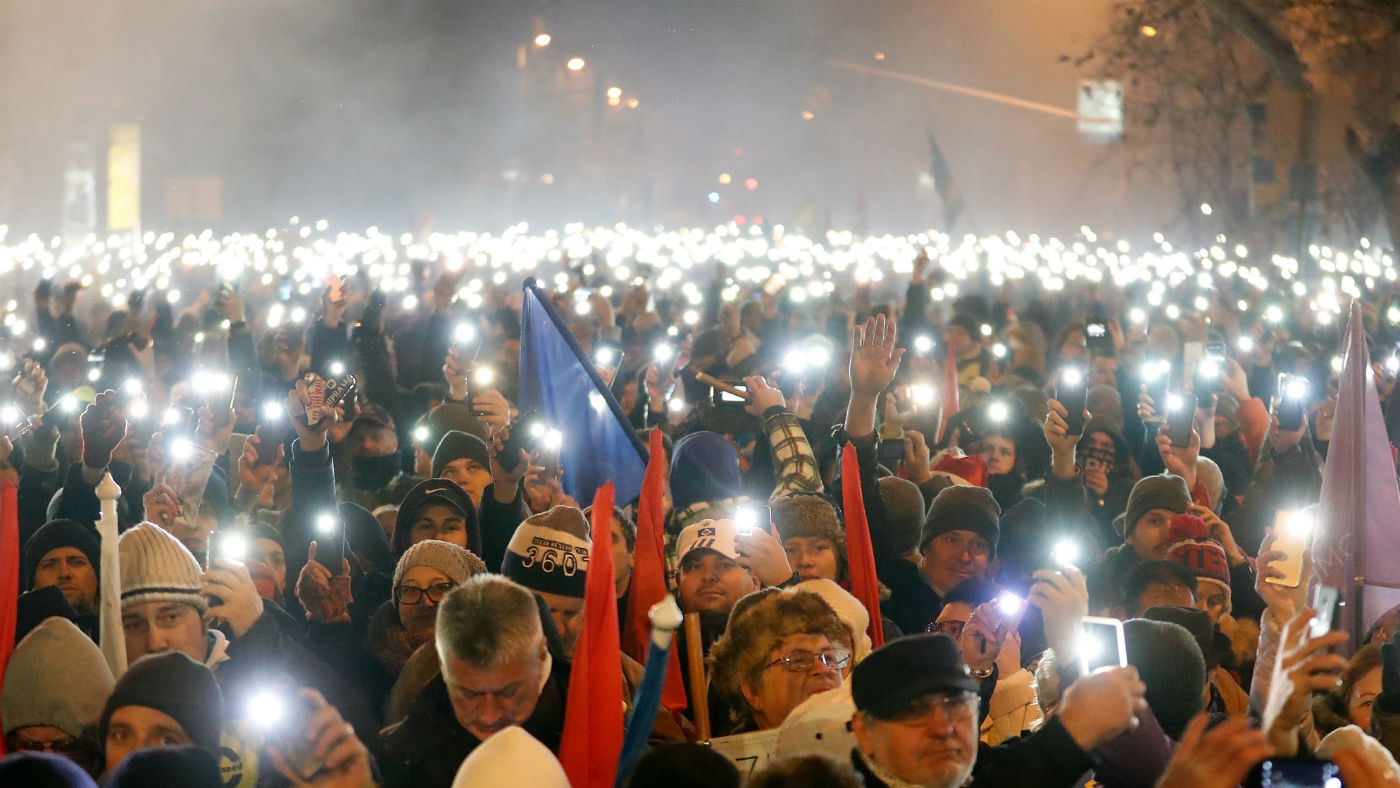Hungary’s opposition unites for biggest protest in a decade
Anger at new ‘slave labour law’ gives way to general opposition to increasingly authoritarian rule of Viktor Orban

A free daily email with the biggest news stories of the day – and the best features from TheWeek.com
You are now subscribed
Your newsletter sign-up was successful
Hungary has seen its biggest opposition protests in a decade, after tens of thousands took to the streets for a sixth night to demonstrate against the increasingly authoritarian rule of Prime Minister Viktor Orban.
People initially came out to protest a series of new laws passed last week that critics say will tighten Orban and his ruling Fidesz party’s grip on power.
One, which has been dubbed the “slave law” that is due to come into effect on 1 January, increases the number of overtime hours employees can be asked to work annually, from 250 to 400. Polls show 80% of Hungarians oppose the new legislation.
The Week
Escape your echo chamber. Get the facts behind the news, plus analysis from multiple perspectives.

Sign up for The Week's Free Newsletters
From our morning news briefing to a weekly Good News Newsletter, get the best of The Week delivered directly to your inbox.
From our morning news briefing to a weekly Good News Newsletter, get the best of The Week delivered directly to your inbox.
Another will create a new government-controlled court system. Rights groups said this will undermine the separation of powers between the executive and judicial branches, paving the way for government political interference.
But what began last week as a rally against the overtime law has expanded into several days of demonstrations against Orban’s government.
On Monday evening, thousands protested outside the headquarters of Hungary's state-run broadcaster MTVA, which opposition MPs had occupied before being manhandled by security guards and forcibly ejected.
Experts have said these protests which have swelled to tens of thousands of people are different from previous unrest in the country in 2014 and 2016 and “the Fidesz government appears bewildered by the speed and spontaneity of events on the streets”, says the BBC’s Nick Thorpe from Budapest.
A free daily email with the biggest news stories of the day – and the best features from TheWeek.com
“It is the first time opposition parties, inside and outside parliament, are cooperating and working together to prevent these laws from taking effect,” Bulcsu Hunyadi, senior analyst at Budapest think tank Political Capital, told CNN.
“What makes these protests different to previous demonstrations against the Fidesz government is that ordinary working people have been galvanised into action,” says Thorpe. “Among other popular themes of protesters are widespread corruption in Fidesz circles and full government control of public service media and growing control of commercial media.”
In a typically bellicose response the government has banished all discussion of the protest from state-controlled media and put the blame on its usual target: the Hungarian-American philanthropist George Soros.
CNN says the billionaire “is Orban's foe, and a frequent punching bag for the Hungarian government and media outlets controlled by Orban allies”.
Earlier this year a “Stop Soros” law was introduced, which banned non-governmental organisations from assisting undocumented migrants.
All eyes will now be on President Janos Ader, who is set to sign the new laws on Friday, but “with temperatures in Budapest below zero, much smaller numbers at Monday’s protest than on previous evenings, and Christmas on the way, the prospects for any serious escalation of the protest mood seem slim”, says The Guardian.
“However, the past week has galvanised the Hungarian opposition, which has previously expended as much energy on internal disputes as it has on fighting the government,” says the paper.